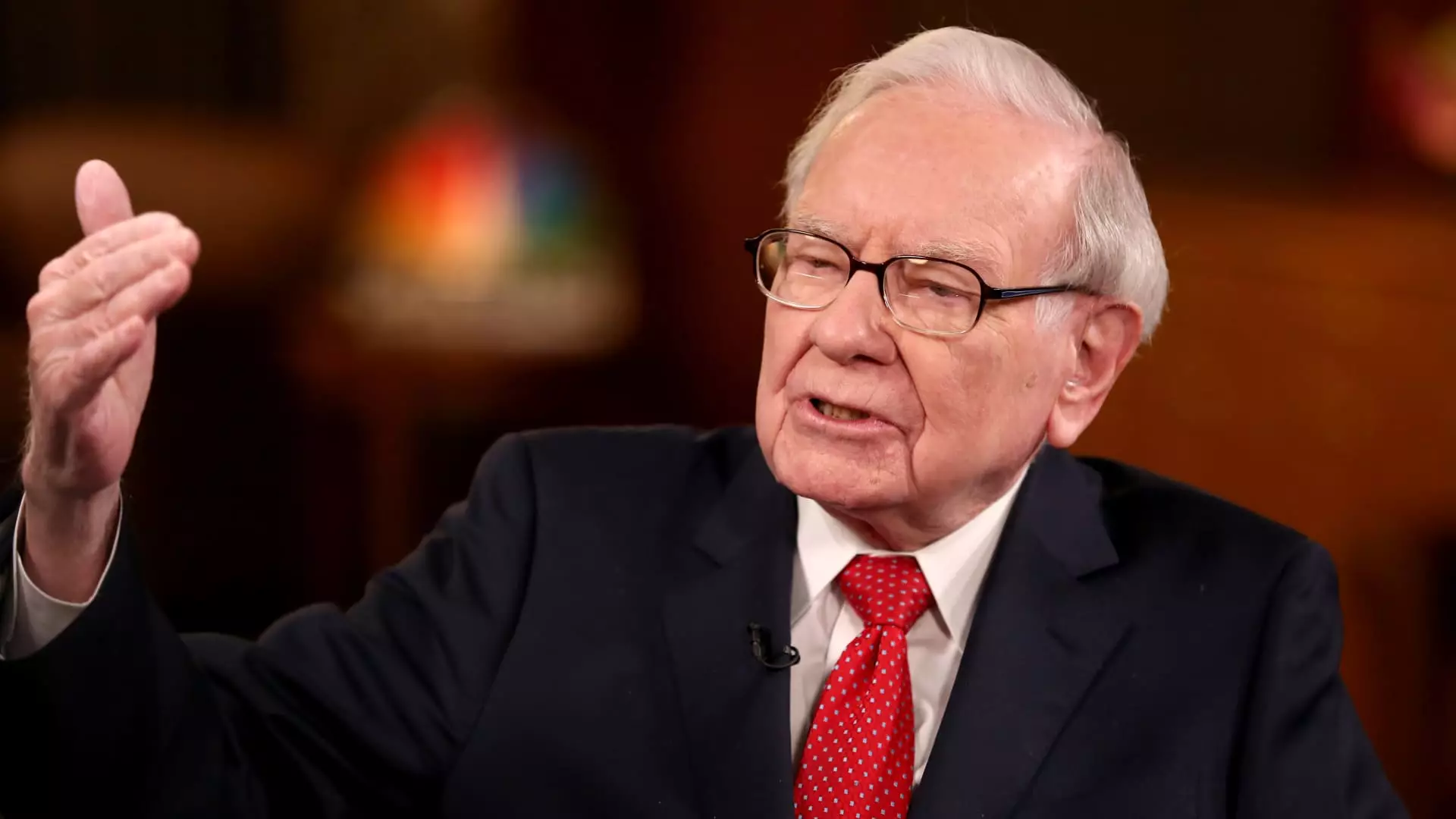In the chaotic arena of social media, the lines between truth and falsehood can blur quicker than a stock price in freefall. The recent incident involving President Donald Trump’s dubious video and its unfounded claims about Warren Buffett showcases this stark reality. Trump’s post alleged that he is intentionally tanking the stock market in a strategic maneuver, supposedly backed by none other than the venerable investor Buffett. Such assertions are not only outrageous but indicative of a broader failure in responsible discourse. Buffett’s quick denial, articulated through his conglomerate Berkshire Hathaway, amplifies the need for clarity in these vitriolic times. As society grapples with misinformation, it becomes crucial to identify the motivations lurking behind these deceptive narratives.
No Endorsements here
Imagine the profound disappointment of beleaguered investors who hang on the words of icons like Warren Buffett only to find their credibility twisted by opportunistic politicians. It’s unfathomable that a man who spent a lifetime building a reputation for careful economic analysis and moral integrity would suddenly endorse reckless financial strategies. Buffett’s rejection of Trump’s claims is more than mere self-preservation; it serves as a reminder that even legendary investors are not immune to the disinformation age. The short video that Trump propagated—the visual equivalent of a house of cards—sourced its veracity from a trend on platforms like TikTok. This is emblematic of how the viral quality of social media can distort precious truths into sensational narratives.
The Role of Tariffs: What Does Buffett Really Think?
It’s not just about rejecting falsehoods; it’s about unraveling the full tapestry of economic reality. Buffett has historically condemned tariffs, a position that mirrors a liberal economic stance advocating for free trade and sustainable growth. He famously described tariffs as “an act of war,” signaling their potentially destructive implications for global economics and trade relations. Trump’s recent tariffs, positioned as effective tools for negotiation or economic strategy, have historically drawn the scorn of thoughtful economists. Rather than being viewed as tactical victories, tariffs bear a significant economic toll, raising costs for consumers and stifling market innovation.
In an era where economic debates have become deeply polarized, Buffett’s warnings resonate strongly within the liberal economic framework that champions openness over isolationism. The propagation of misguided economic policies reaffirms an ideological divide that may lead to consequences far worse than mere market fluctuations.
Buffett’s Cash Hoard: A Strategic Retreat?
Warren Buffett’s recent actions—liquidating stocks and amassing over $300 billion in cash—raise eyebrows and demand scrutiny. This defensive maneuver might signal apprehension regarding the current economic climate. Critics may interpret his decisions as a sign of pessimism, given the uncertainty driven by unfounded claims and unstable policy implementation. Yet, there is also an opportunity for strategic investment in the future, implying a careful watch on market dynamics rather than a retreat from them.
Buffett’s cash hoard can also be viewed through a critical lens: is he preparing for a potential turnaround, or is this an indication of a looming economic storm? Beyond merely accumulating wealth, Buffett’s moves prompt an ethical reflection on the practice of investing, especially as the current administration dabbles in disinformation and market manipulation.
A Liberal Call for Economic Responsibility
The discourse surrounding Trump and Buffett transcends personalities; it represents larger systemic issues at play in contemporary politics and economics. The blending of entertainment and politics, exemplified by Trump’s social media presence, means that critical economic decisions become drowned out in the din of sensationalistic chatter. As citizens and stewards of the economy, we should advocate for transparency and accountability from those in power. The tumultuous landscape requires liberal thinkers to champion economic policies rooted in factual discourse rather than rhetoric meant to placate or confuse.
Buffett’s situation illustrates that the narratives we consume can have tangible impacts on our economic realities. The moral and ethical dimensions of investing and policy-making must not only be acknowledged but actively debated. As we witness divisive rhetoric employed for electoral gains, the responsibility lies heavily with both leaders and the public to seek clarity in a world too often obscured by misinformation.

